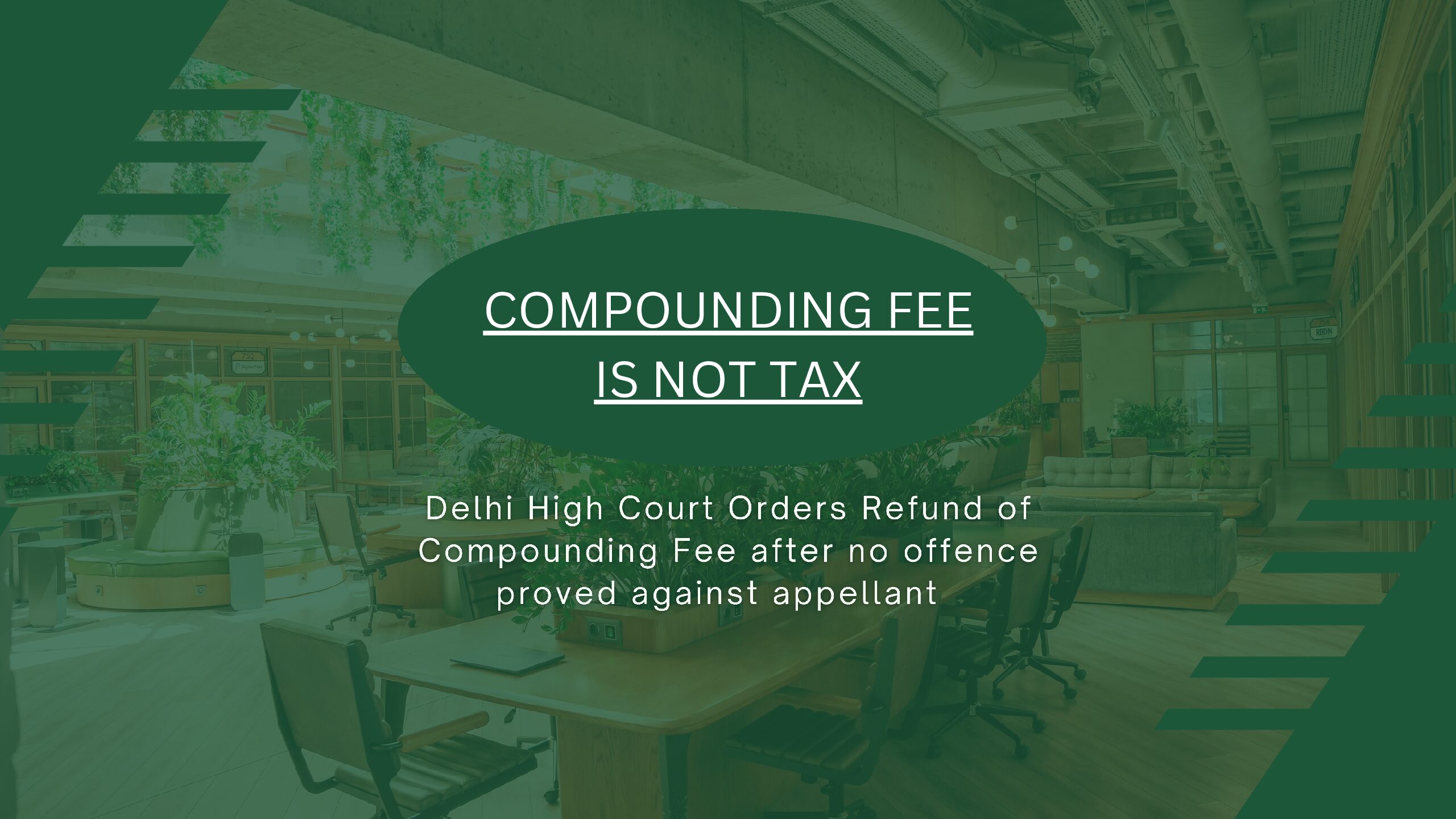In a recent judgment[1], the Delhi High Court clarified that merely because appellants paid a compounding fee after initiation of legal proceedings against them, does not permit the State to retain the said amount if there was no legal provision under which the appellants were obligated to make the payment. The High Court clarified that in order to successfully claim the refund of compounding fee, it was not necessary for the appellants to have stated that it was paid under protest.
Introduction
The appellants imported fuel dispensing equipment for use at retail outlets in the country but without obtaining registration under the Legal Metrology Act, 2009. The respondents – Director of Legal Metrology and Others – took the view that appellants did not comply with the statutory requirements under Legal Metrology Act, 2009 and initiated proceedings against the appellants. During proceedings, the appellants paid compounding fee to the respondents.
On examining the issue as to whether appellants need to obtain registration before importing the equipment, a Single Judge of the Delhi High Court held that the appellant was not liable to register under the Legal Metrology Act, 2009. However, the Judge refused to accept the appellant’s plea for refund of the compounding fee reasoning that the payment was not made under coercion, but voluntarily. The judge observed, that at the time of making payment, the appellants did not communicate that they were making the payment under coercion or under protest.
Decision
The Division Bench of the Delhi High Court held that it was unable to sustain the conclusions reached by the Single Judge. As per the Division Bench, once it was clear that the appellants were not liable under the Legal Metrology Act, 2009 it was difficult to accept the proposition that they should be held liable to pay the compounding fee.
The Division Bench concluded:
We also deem it pertinent to observe that the respondents being “State” cannot be countenanced to retain monies which are otherwise not payable by the appellants under the provisions of the 2009 Act. When viewed in that light, it is evident that the issue of deposit without demur or protest could not have justified the retention of compounding fee. (para 8)
It is evident that the retention of money by the Metrology Department – termed as State – by the Division Bench by viewed as illegal. The Division Bench was clear in stating that a compounding fee was not in the nature of a tax or duty but a payment made to avoid the rigours of a legal proceeding. Payment of compounding fee should not be understood mean acceptance of violation of the statutory provisions or an acceptance of guilt.
The Division Bench adopted a comparatively more coherent approach in ordering the refund of the compounding fee. If the action of respondents was held to be not violative of the impugned statute, there was little to no reason for disallowing their request to refund the compounding fee paid to thwart legal proceedings initiated under the said statute. Merely not stating that the compounding fee was paid under protest was not a valid ground to deny the refund of compounding fee, and the Single Judge Bench erred in denying the refund.
[1] Indian Oil Corporation Ltd v Director of Legal Metrology & Ors 2023 LiveLaw (Del) 654.
